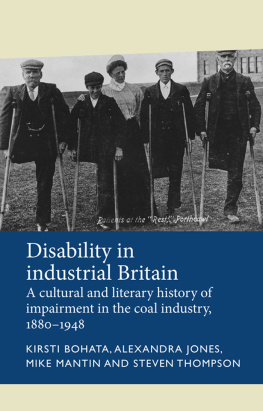Published in the USA by Routledge a division of Routledge, Chapman and Hall, Inc.
PREFACE TO THE 2009 EDITION
To Dieter Wartenweiler
Why republish a book, compiled and written more than twenty five years ago?
Many of the problems and insights about mental illness are true today as they were years ago.
The medical paradigms then and now have relieved much human suffering. But the allopathic medical basis, still makes people feel sick, and may contribute to isolating us from one another. One of Jungs gifts to the world was his understanding for example, that dreams are meaningful. He called them teleological, that is meaningful. For him they were not pathological or only problems.
We need a teleological view of unusual mental states as well. That is why I called statistically unusual forms of consciousness and behavior, extreme states instead of illnesses. Standard medical paradigms and approaches are important. But even larger views that approach all human experiences as meaningful belong to the total picture of who we are as a human race. They teleological or process oriented views are important at well, not just for individuals suffering from extreme states, but for family systems as well.
Someone with unusual mental experiences, someone in an extreme state is not just ill, but a city shadow, a part of our larger collective, a voice that is usually marginalized as insignificant.
This book, City Shadows was meant to initiate and outline psychological methods for understanding, working with, and integrating people suffering from unusual states of consciousness instead of only medicating, or otherwise isolating them from the rest of the world. The way mainstream cultures characterize what is normal may have profound effects on even provoking extreme states.
May the future move forwards in appreciating the vast diversity in our human nature.
Arny Mindell, Portland, Oregon, October 2008.
ACKNOWLEDGMENTS
I am indebted to several Swiss Social Service centers for exciting supervision weeks from which many of the reports presented in this text are derived. Only the names and personal material of the people we worked with during those weeks have been changed in the otherwise verbatim transcripts of video tapes.
I am also greatly indebted to Dr Dieter Wartenweiler for having inspired me to do this work. I am also thankful to Dr Joe Goodbread, Jean Claude Audergon, Ursula Hohler and Dr Kathy Ziegler for participating with me, holding my hand and helping me prepare some of the methods for the interactions which occurred during those weeks. I am particularly thankful to the Sozialdienst of the City of Zurich and of Dubendorf for asking me to supervise their training programs. I gained much insight from these groups into the nature of social psychiatric problems, especially those dealing with criminal behavior.
Many special thanks to Amy Kaplan for numerous debates, clarifying discussions and supporting material, especially concerning the topics of Chapters 2, 3, 4 and 5.
Ursula Hohler also helped me a great deal by commenting and adding to the original text. Special thanks go to Dr Samuel Wiener for his useful comments and criticisms of the manuscript. Furthermore, the following individuals have greatly improved this manuscript by offering their criticism, suggestions and information about psychiatric hospitals, conditions and language: Jim Beggs, Larry Bearg, Erwin Lichtenegger, Jan Loeken, George Mecouch, Dawn Menken, Carl Mindell, Scott Sandage, Suzanne Springs, Dieter Wartenweiler, Kathy Ziegler, and Adam Zwig. I am especially grateful to Julie Diamond for her enthusiastic editorial help.
I am indebted to the students of my psychiatry class at the Research Society for Process Oriented Psychology in Zurich for going over the case material of this book with me as it was presented in lecture form. They challenged me to express unconscious beliefs, goals and speculations which otherwise would have remained unconscious.
And finally, I am immensely grateful to those many clients with whom I have worked during the last twenty-five years who have suffered through their extreme and borderline states with me and showed me clearly where my inner representation of their realities had been incomplete. In the final evaluation, they have turned out to be my most important teachers about psychotic phenomena.
For general information about Process Oriented Psychology, please write in the USA to:
Dr Suzanne Springs
Research Society for POP
PO Box 38572
Denver Co 80238
and in Europe to:
Madeleine Ziegler, Lic Phil
Research Society for POP
Etzelstr 10
8038 Zurich
Switzerland
Part I
INTRODUCTION
Chapter 1
PSYCHIATRY IN CRISIS
This book is written for both students and experienced professionals, psychiatrists, psychologists, psychiatric social workers, nurses, nurses aides, secretaries, city officials, interested laymen and family members, who, by profession or out of compassion, must deal with the wide spectrum of people who are dependent upon the citys social work agencies, drug rehabilitation centers or mental hospitals for financial, psychological and moral support. It is a work written in the spirit of new beginnings. What are the full implications of process work with extreme states?
At the present time, near the end of the 1980s, the most common paradigm in psychiatry is the so-called medical model. This model has various aspects to it. At its core lies the concept of causality and the related programs of defining disease, searching for its causes and attempting to cure it with behavioral and chemical interventions. This program organizes definitions, research and treatments of what are defined mental illnesses.
The biomedical paradigm has proven to be useful in the cure and amelioration of symptoms in medicine and psychiatry, though its applicability to the latter is debated by many authors [Greist et al., 1982). The global, and by now common, critiques of modern psychiatry usually deal with the incongruity of its focus. If it deals mainly with mood states, with affects, feelings, hallucinations and disturbed belief systems, then, according to many, it should stand on its own relative to its parent, modern medicine, and not simply adapt medical concepts which only partly apply to non-physical disease descriptions.
CONTENTS OF THIS WORK
A process oriented approach which attempts to discover the structure and flow of psychotic states is presented and compared to given medical techniques. Thus, the terms and diagnoses of the Diagnostic and Statistical Manual of Mental Disorders (DSM III 1980), the most accepted and clearly formulated medical statement about mental disorders, is related to and differentiated from process work throughout this text. (See the Glossary for the connection between psychiatric and process work terms.)
Verbatim interviews are transcribed from video tape recordings and psychotherapeutic interventions of disease entities such as schizophrenia, manic-depressive reactions (or bipolar disease), mania, depression, suicide, psychopathy, organic brain damage, alcoholism, heroin addiction, epilepsy, imbecility, forensic psychiatric problems and sociopathy are presented here.













